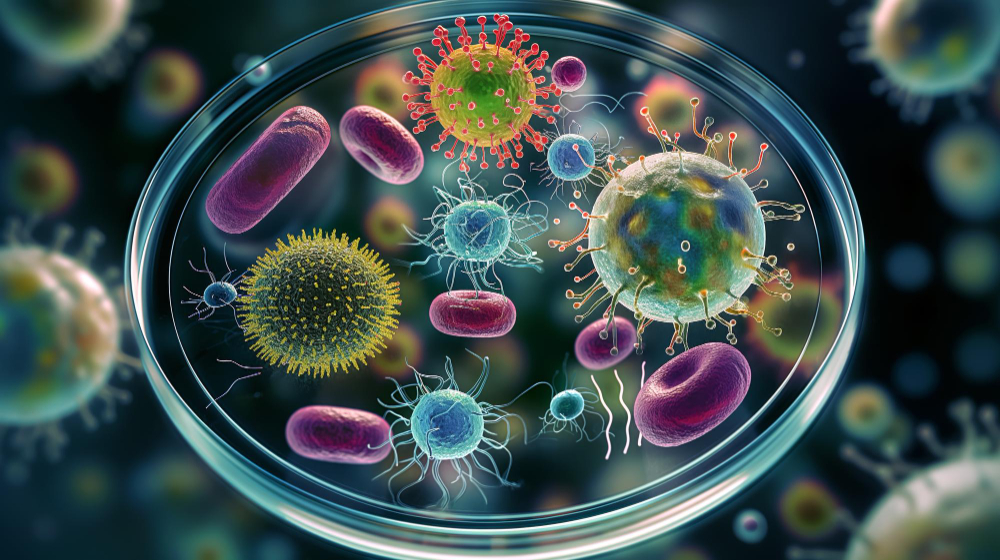DNPC 622 Pathogenesis of Complex Disease is a pivotal course for students enrolled in the Doctor of Nursing Practice (DNP) program. This advanced course focuses on the critical analysis and synthesis of pathophysiological and genetic concepts to understand the complexities of disease states in acutely or chronically ill individuals, with a strong emphasis on multi-system conditions.
DNPC 622 Pathogenesis of Complex Disease Course Overview
Units: 3
Repeatability: No
Prerequisites:
- APNC 520 with a minimum grade of C-
- APNC 521 with a minimum grade of C-
- APNC 523 with a minimum grade of C-
Note: Successful completion of the course with a letter grade of B- or higher is necessary to pass the course.
DNPC 622 Pathogenesis of Complex Disease Course Description
DNPC 622 delves into the pathogenesis of complex diseases, exploring the intricate interplay between advanced pathophysiology and clinical genetics. The course is designed to provide a solid foundation for the application of evidence-based practice models in clinical management, with a particular focus on pharmacogenetics. Students will engage in a comprehensive examination of multi-system conditions, enhancing their ability to diagnose, treat, and manage complex health issues.
Key Topics Covered in DNPC 622 Pathogenesis of Complex Disease
- Advanced Pathophysiology:
- In-depth study of disease mechanisms at the molecular, cellular, and systemic levels. This includes the examination of how various factors contribute to disease development and progression.
- Clinical Genetics:
- Exploration of genetic influences on disease, including the role of genetic mutations, inheritance patterns, and genetic predispositions in the pathogenesis of complex diseases.
- Multi-System Conditions:
- Analysis of diseases that affect multiple organ systems, understanding the interconnectedness and systemic impact of these conditions on the body.
- Pharmacogenetics:
- Application of genetic information to predict patient responses to medications, enabling personalized treatment plans that optimize therapeutic outcomes and minimize adverse effects.
- Evidence-Based Practice Models:
- Utilization of evidence-based practice models to inform clinical decision-making and improve patient care. This includes critical evaluation of research evidence and its application in clinical settings.
DNPC 622 Pathogenesis of Complex Disease Course Objectives
- Understand Complex Disease Mechanisms:
- Develop a comprehensive understanding of the advanced pathophysiological and genetic mechanisms that underpin complex diseases.
- Integrate Knowledge into Clinical Practice:
- Apply knowledge of pathogenesis to enhance clinical practice, improving the ability to diagnose, treat, and manage multi-system conditions effectively.
- Utilize Evidence-Based Practice:
- Employ evidence-based practice models to guide clinical management, ensuring that patient care is informed by the latest research and best practices.
- Focus on Pharmacogenetics:
- Incorporate pharmacogenetic principles into clinical decision-making, tailoring treatments based on individual genetic profiles to optimize patient outcomes.
- Enhance Analytical and Synthesis Skills:
- Strengthen the ability to critically analyze and synthesize complex pathophysiological and genetic information, applying this knowledge to clinical scenarios.
Importance of Understanding Pathogenesis
Understanding the pathogenesis of complex diseases is essential for several reasons:
Accurate Diagnosis
A deep understanding of disease mechanisms allows for more precise diagnoses, identifying the underlying causes of clinical symptoms and findings.
Effective Treatment
Knowledge of pathogenesis enables the development and implementation of targeted therapies that address the root causes of disease, leading to more effective and efficient treatments.
Personalized Medicine
Insights into genetic and environmental interactions facilitate personalized approaches to treatment, ensuring that interventions are tailored to individual patient profiles.
Preventive Strategies
Understanding disease mechanisms informs the development of preventive strategies, reducing the incidence and severity of complex diseases through early intervention and risk mitigation.
Innovative Research
Advances in the understanding of pathogenesis drive innovation in medical research, leading to the discovery of new therapeutic targets and the development of novel treatments.
FAQs for DNPC 622 Pathogenesis of Complex Disease
What is DNPC 622: Pathogenesis of Complex Disease?
DNPC 622 is an advanced course in the Doctor of Nursing Practice (DNP) program that focuses on the critical analysis and synthesis of advanced pathophysiology and clinical genetics to examine complex disease states in acutely or chronically ill individuals, with an emphasis on multi-system conditions.
What are the prerequisites for DNPC 622?
The prerequisites for this course are APNC 520, APNC 521, and APNC 523, each with a minimum grade of C-.
What is the pathogenesis of immune complex disease?
The pathogenesis of immune complex disease involves the formation of immune complexes (antigen-antibody complexes) that deposit in tissues and trigger inflammatory responses, leading to tissue damage and various clinical manifestations such as glomerulonephritis and vasculitis.
What is the pathogenesis of Huntington’s disease?
Huntington’s disease is caused by a genetic mutation in the HTT gene, leading to the production of an abnormal huntingtin protein. This protein accumulates in neurons, causing neurodegeneration and the characteristic symptoms of Huntington’s, including motor dysfunction, cognitive decline, and psychiatric disturbances.
Must Read:
- University of San Diego DNP Capstone Project Help
- DNPC 610 Philosophy of Reflective Practice
- DNPC 611 Methods of Translational Science/ Evidence Based Clinical Practice
- DNPC 622 Pathogenesis of Complex Disease
- DNPC 625 Epidemiology: Foundations of Evidence-Based Practice
- DNPC 626 Strategic Planning and Quality Initiatives
- DNPC 648 Health Policy Analysis
- DNPC 660 Advanced Leadership and Financial Decision Making for Complex Systems Management
- DNPC 660P Advanced Leadership for Complex Systems Management Practicum
- DNPC 665 Consumer Health Informatics
- DNPC 686 Perspectives in Program Planning and Evaluation
- DNPC 630 DNP Scholarly Practice

